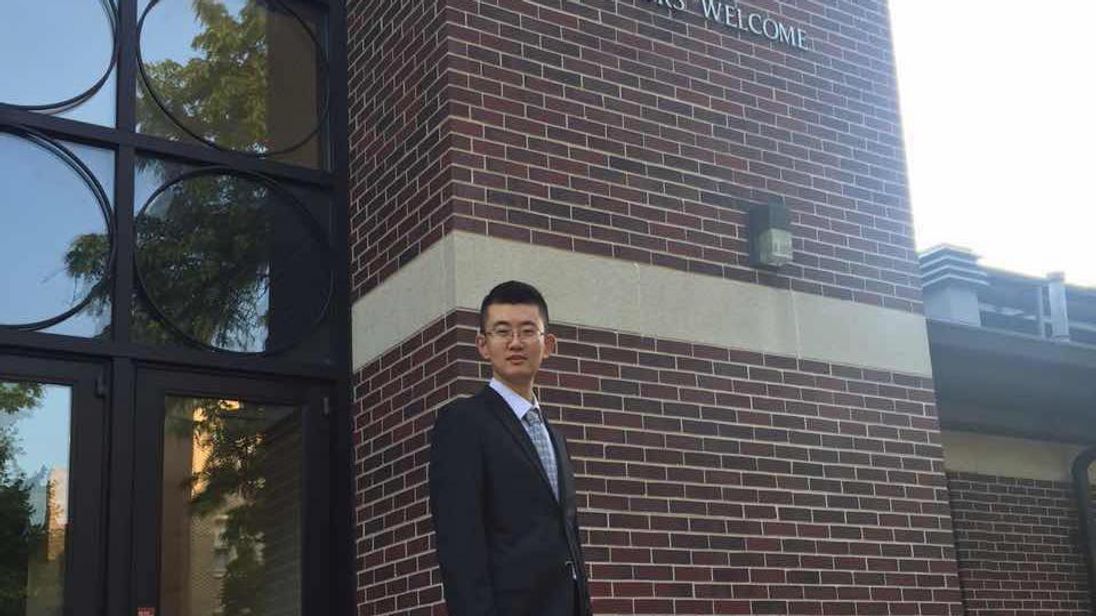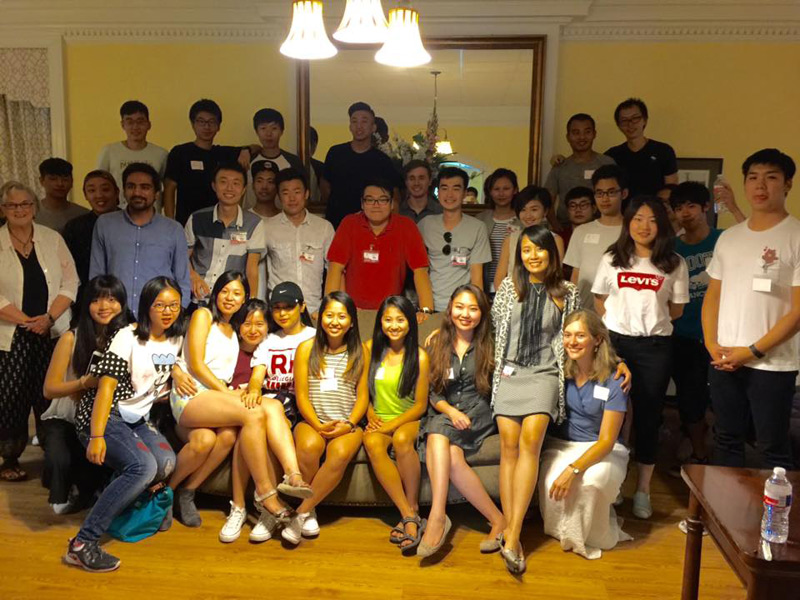Sky News

Student-spy Ji Chaoqun is charged with spying on eight American citizens.
A Chinese national has been charged with spying on US citizens in an attempt to recruit scientists and engineers.
Ji Chaoqun has been providing Chinese intelligence with information about eight US citizens, some of whom were defence contractors.
He was charged with one count of knowingly acting as an agent of a foreign government, without prior notification to the US attorney general.
Ji appeared in court on Tuesday with an interpreter.
When asked if he knew his rights, he answered "I understand" in English.
He faces up to 10 years in prison if he is convicted.
He faces up to 10 years in prison if he is convicted.
He was held in custody after the hearing.
Ji first arrived in Chicago five years ago on a student visa to study electrical engineering.
Ji was working at the direction of a high-level intelligence officer in China's Ministry of State Security, which handles civilian intelligence collection and is responsible for counter-intelligence and foreign intelligence, as well as political security.
Ji admitted to his work after one of his handlers was arrested earlier this year.
He told undercover agents: "They just wanted me to purchase some documents on their behalf. Their reason was just because it was inconvenient for them to make payments from China."
After a warrant was issued to search Ji's email account in March 2018, investigators found he had emailed background reports on eight US individuals generated by three different background report companies.
He sent the documents in an email with a subject line about midterm quiz questions.
The companies only accept payments from US credit cards and for US customers.
In a statement, the US Department of Justice said: "In 2016, Ji enlisted in the US army reserves as an E4 specialist under the Military Accessions Vital to the National Interest (MAVNI) programme, which authorises the US armed forces to recruit certain legal aliens whose skills are considered vital to the national interest.
"In his application to participate in the MAVNI program, Ji specifically denied having had contact with a foreign government within the past seven years, the complaint states.
"In a subsequent interview with a US army officer, Ji again failed to disclose his relationship and contacts with the intelligence officer."
The eight people Ji has been spying on are naturalised US citizens who were born in Taiwan or China.
Investigators trawled Ji's phone records and found dozens of texts between him and two Chinese intelligence officers, including arrangements to meet up.
Relations between the US and China are already strained because of the pending trade war.
On Monday, the US president imposed extra tariffs on $200bn (£152bn) worth of Chinese goods, mostly technology-related products.
Ji first arrived in Chicago five years ago on a student visa to study electrical engineering.
Ji was working at the direction of a high-level intelligence officer in China's Ministry of State Security, which handles civilian intelligence collection and is responsible for counter-intelligence and foreign intelligence, as well as political security.
Ji admitted to his work after one of his handlers was arrested earlier this year.
He told undercover agents: "They just wanted me to purchase some documents on their behalf. Their reason was just because it was inconvenient for them to make payments from China."
After a warrant was issued to search Ji's email account in March 2018, investigators found he had emailed background reports on eight US individuals generated by three different background report companies.
He sent the documents in an email with a subject line about midterm quiz questions.
The companies only accept payments from US credit cards and for US customers.
In a statement, the US Department of Justice said: "In 2016, Ji enlisted in the US army reserves as an E4 specialist under the Military Accessions Vital to the National Interest (MAVNI) programme, which authorises the US armed forces to recruit certain legal aliens whose skills are considered vital to the national interest.
"In his application to participate in the MAVNI program, Ji specifically denied having had contact with a foreign government within the past seven years, the complaint states.
"In a subsequent interview with a US army officer, Ji again failed to disclose his relationship and contacts with the intelligence officer."
The eight people Ji has been spying on are naturalised US citizens who were born in Taiwan or China.
Investigators trawled Ji's phone records and found dozens of texts between him and two Chinese intelligence officers, including arrangements to meet up.
Relations between the US and China are already strained because of the pending trade war.
On Monday, the US president imposed extra tariffs on $200bn (£152bn) worth of Chinese goods, mostly technology-related products.
China then announced a series of retaliatory tariffs on $60bn (£45.6bn) of US imports.
It follows a lengthy row between the U.S. and China over the America's trade deficit with the nation.
It follows a lengthy row between the U.S. and China over the America's trade deficit with the nation.
